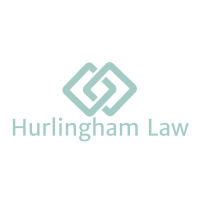Entry clearance
If you’re a non-EEA citizen planning to visit the UK, you may need to apply for entry clearance. Entry clearance is a document that proves your right to enter the UK and is required for certain types of visas. In this guide, Hurlingham Law provides expert guidance on the UK entry clearance process.
Eligibility: To apply for UK entry clearance, you must meet the following eligibility criteria:
- You’re from outside the European Economic Area (EEA) or Switzerland
- You’re planning to visit the UK for a specific reason (e.g., to study, work, or visit family)
- You have enough money to support yourself during your stay
- You don’t have a criminal record or pose a security threat to the UK
Application Process: The application process for UK entry clearance involves the following steps:
Step 1: Determine if You Need Entry Clearance Check if your visa type requires entry clearance. If so, you’ll need to apply for entry clearance before you can travel to the UK.
Step 2: Gather Required Documents You’ll need to provide certain documents as part of your entry clearance application. These may include:
- A valid passport or travel document
- Evidence of your reason for visiting the UK (e.g., a letter from your employer or a university acceptance letter)
- Evidence of your finances (e.g. bank statements)
- Evidence of your accommodation in the UK
Step 3: Complete the Online Application Form You can apply for entry clearance online through the UK government website. You’ll need to create an account and fill in the online application form.
Step 4: Pay the Fee Once you’ve completed the application form, you’ll need to pay the fee. The fee varies depending on your circumstances and the type of visa you’re applying for.
Step 5: Book an Appointment After you’ve paid the fee, you’ll need to book an appointment at a UK visa application centre. During your appointment, you’ll need to provide your biometric information (fingerprints and a digital photograph).
Step 6: Wait for Your Decision After you’ve provided your biometric information, you’ll need to wait for a decision on your entry clearance application. The processing time varies depending on your circumstances and can take several weeks.
Using Your Entry Clearance: Once you’ve received your entry clearance, you’ll need to carry it with you when you travel to the UK. You may need to show your entry clearance to:
- Border officials when entering or leaving the UK
- Your employer or educational institution
- Your landlord or accommodation provider
Obtaining entry clearance for the UK can be a complex process, but with the right guidance, it can be a smooth and successful journey. At Hurlingham Law, our experienced immigration advisors can guide you through each step of the entry clearance application process and ensure that your application meets all the eligibility requirements. Contact us today to learn more about our entry clearance services.
Hurlingham Law provides free initial consultations to help you navigate the UK immigration system. Our experienced advisors offer expert guidance on all entry clearance applications, visas, indefinite leave to remain, licence compliance and citizenship. Contact us today to book your consultation. Navigating the UK immigration system can be a complex and daunting process. With so many different visa options and application requirements, it’s easy to feel overwhelmed. That’s why Hurlingham Law offers free initial consultations to help you understand your options and make informed decisions about your immigration journey.
Our experienced advisors have a wealth of knowledge and expertise in UK immigration law. We understand that every case is unique, and we take the time to listen to your individual circumstances and needs. We’ll work with you to identify the best visa option for your situation and provide you with a clear roadmap of the application process.
